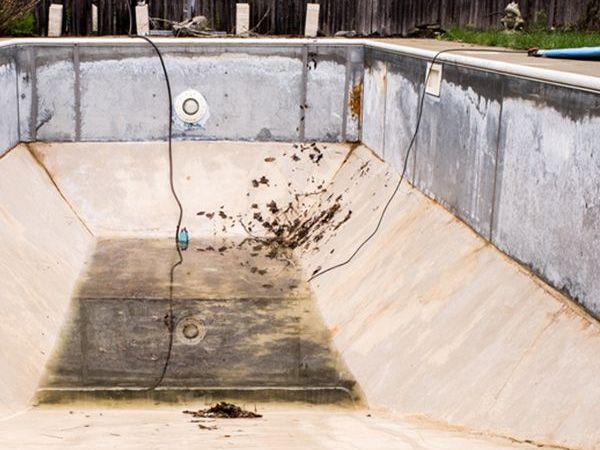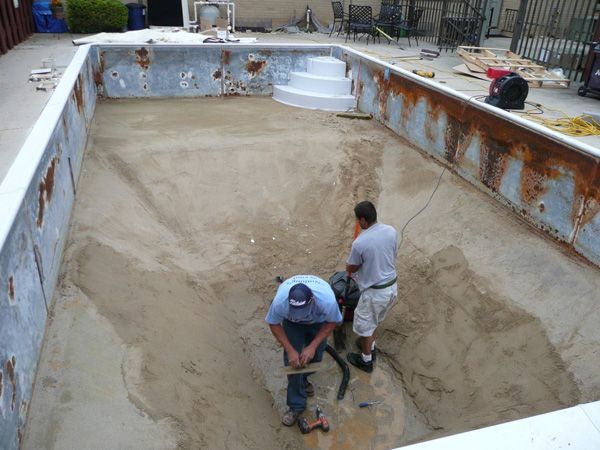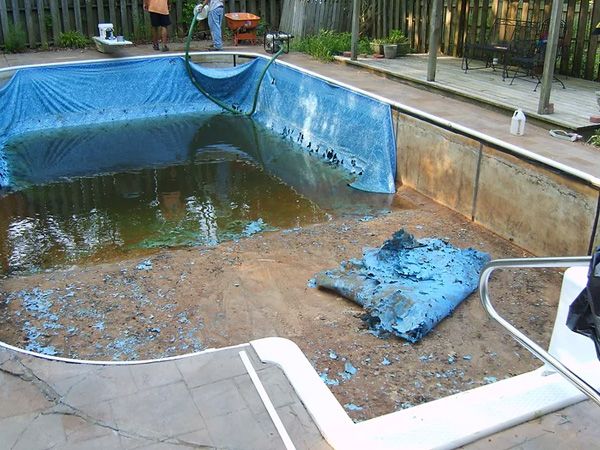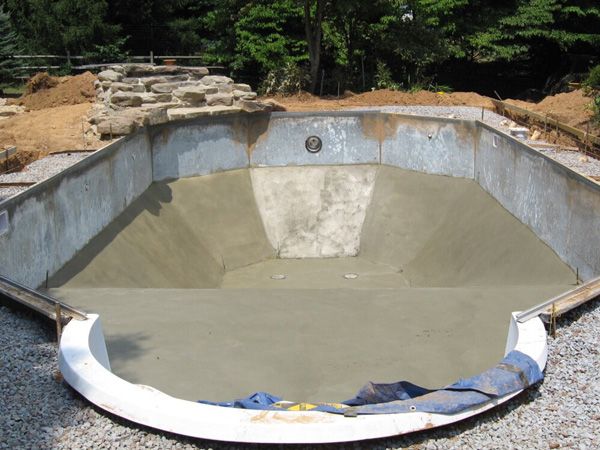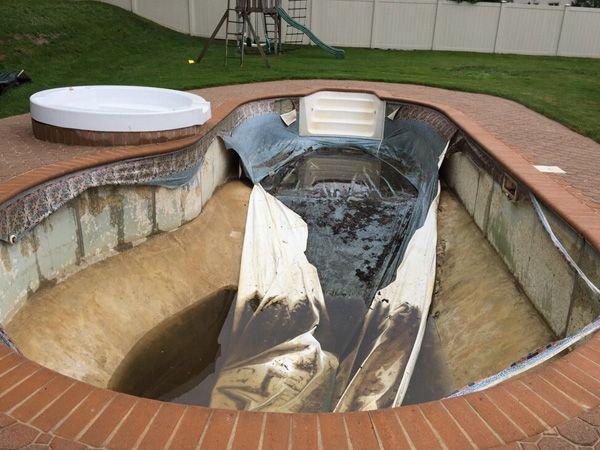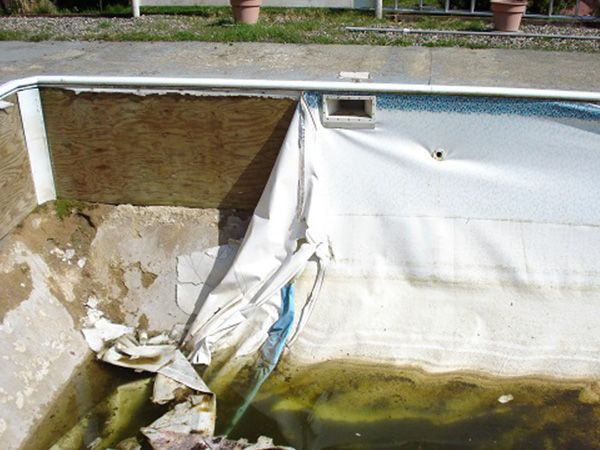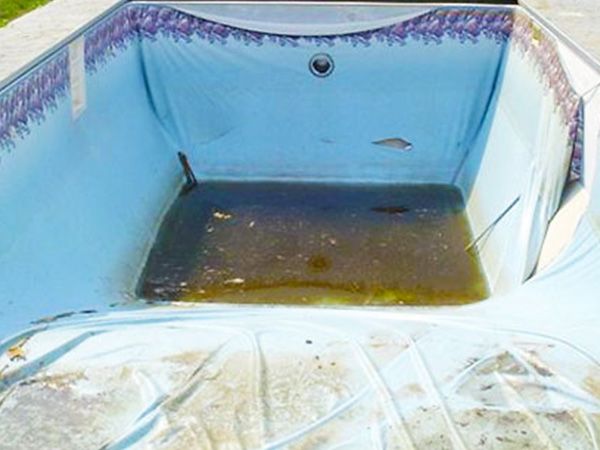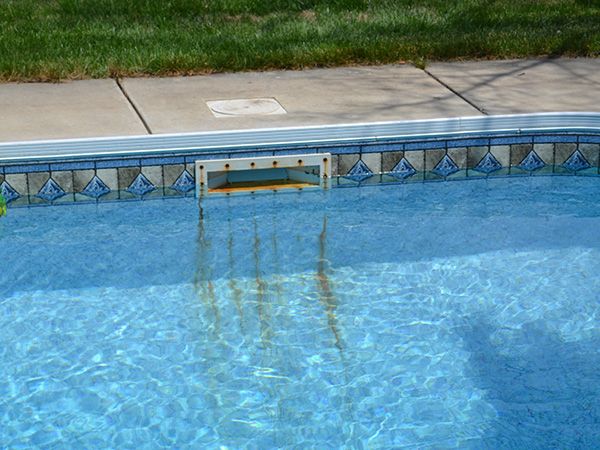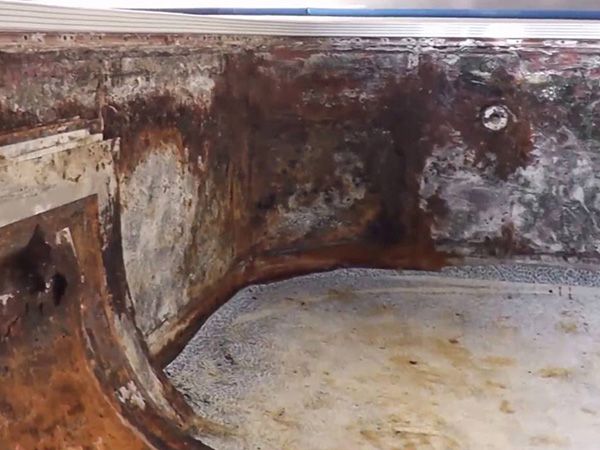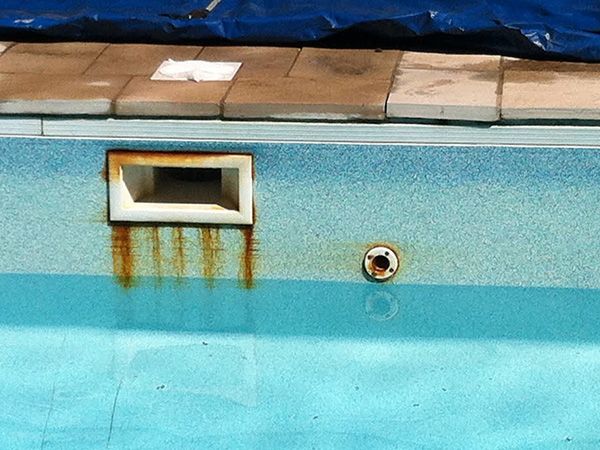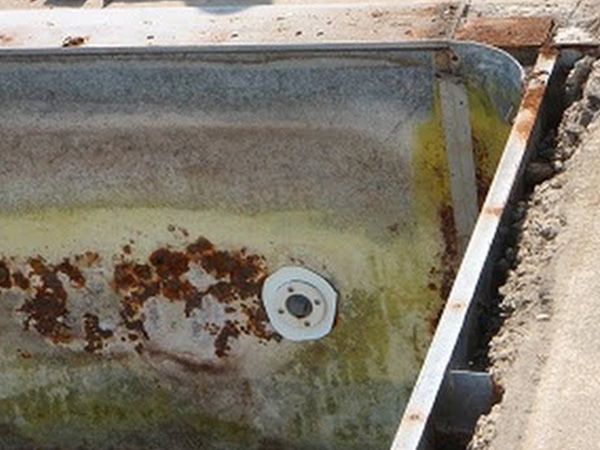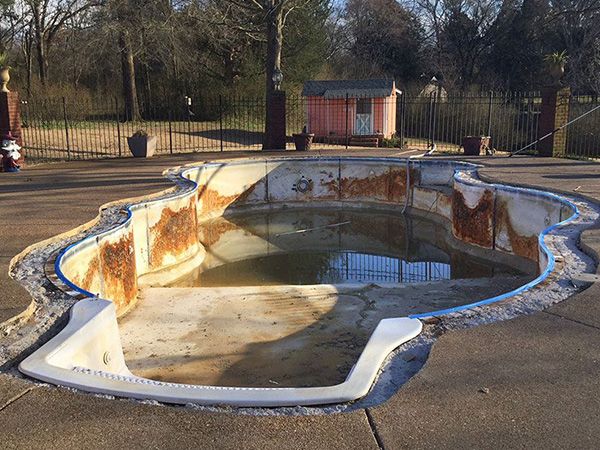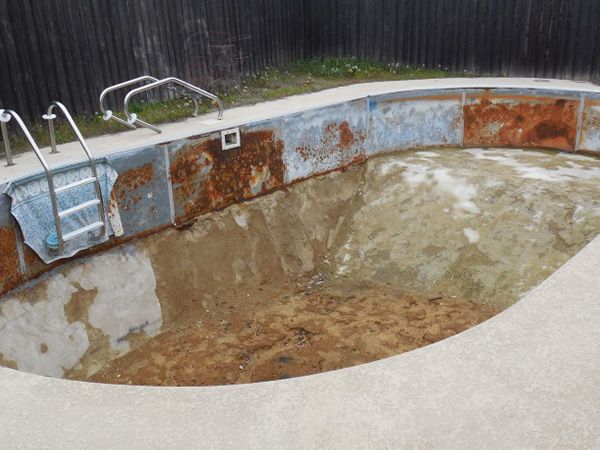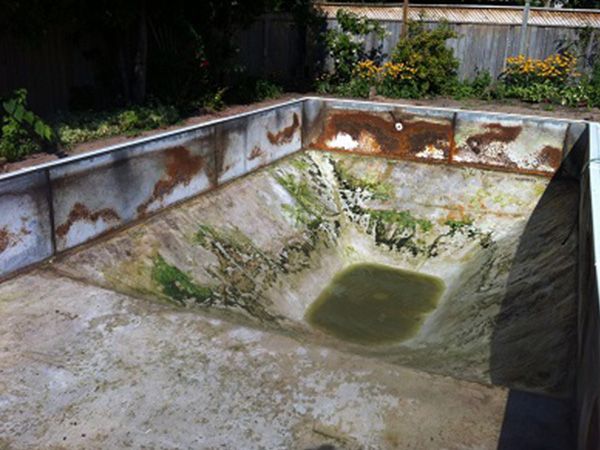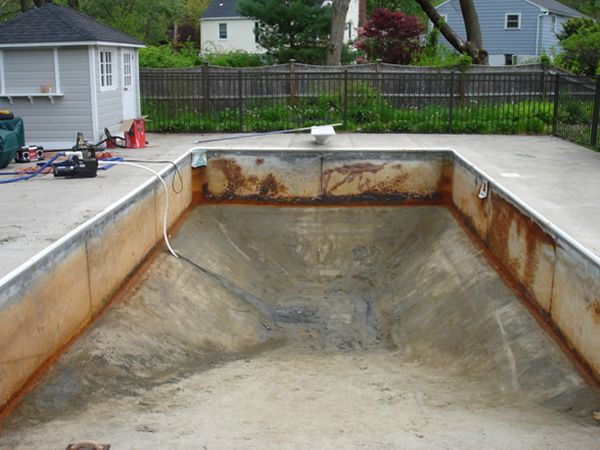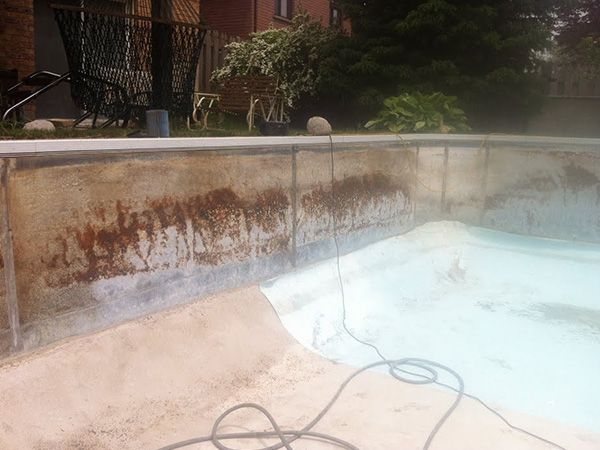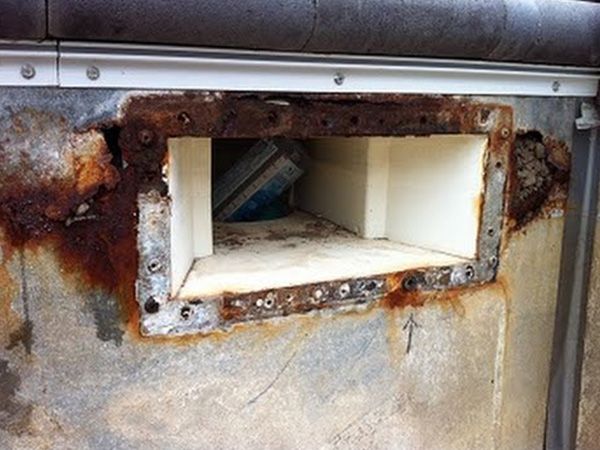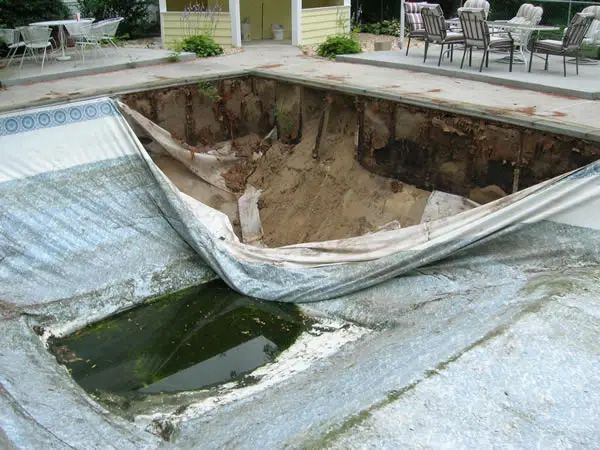https://steelpoolsrust.com > why-do-steel-pools-rust... :
Why do steel pools rust?
-
Repeated cycles of condensation followed by evaporation cause accumulation of these aggressive chloride-bearing compounds on above-water surfaces. There compounds are responsible for the majority of metal corrosion problems found in swimming pool environments.
The problem with rust developing on the pool walls usually starts with a leak in the pool that allows the chlorinated water to touch the wall panels directly. This will allow chlorinated water to promote rust on the walls as well as allow the wall panels to become part of the galvanic couple of the pool system.
Choosing between steel and polymer isn't always easy — but it is always important. While both are strong materials, polymer is more resistant to corrosion and damage.
What is the most durable type of inground pool?Its durability is reflected by the fact that many inground fiberglass pools last as long as 50 years without the need for major repairs or replacement. It's a material built to last a lifetime. All things considered, polymer and fiberglass pools are the most durable pool types.
People also ask:
Will steel pools rust?
Steel is naturally tough and rigid, which makes it a perfect choice for something that has to hold thousands of gallons of heavy water, like, say, a pool. But steel pools will eventually rust! Yes, they will.
How long before steel pool walls rust?
How long before steel pool walls begin to rust? The life expectancy of a steel pool wall on average is about 5 - 7 years, before they begin to rust, and steel pool walls fall into this range. Although a steel pool is still sturdy, it's susceptible to rust and eventual major corrosion from the chlorinated water.
What causes stainless steel to rust in a pool?
Chlorine- containing compounds (by-products of disinfection) may transfer via the pool atmosphere to surfaces remote from the pool itself. These compounds can produce a highly concentrated and corrosive film which, on the surface of some stainless steels, can lead to SCC.
How long does it take for a pool to rust?
The market average life of an above ground pool may be shorter than you think at about 7-15 years. However, when you buy from a quality brand and maintain your pool properly it will last many years longer than that. After all, you can't expect much if you buy a piece of junk and let it rust in the yard.
What is the best pool wall?
Polymer wall pool Advantages – Polymer pool walls are made of a non-corrosive material that are strong and stable, and will never rust, corrode or dent. Polymer walls are a lighter weight than steel walls, which makes them easier to lift and handle so less chance of injuring yourself when lifting the polymer panels
What is better polymer or steel pool walls?
Choosing between steel and polymer isn't always easy — but it is always important. While both are strong materials, polymer is more resistant to corrosion and damage, while steel is highly customizable.
How long do stainless steel pools last?
After all, buying a pool is a big investment, and homeowners want to know if steel pools are ideal in the long run. The short answer to the question is that steel pools last anywhere from five to 10 years before they need to be replaced—but there are some of the factors that can affect your pool's lifespan.
What type of inground pool is easiest to maintain?
A fiberglass pool is not prone to growing algae, which is one of the main reasons why this pool is easier to maintain. Anyone who is looking for a pool that doesn't require a lot of maintenance may want to consider going with a fiberglass pool.
What is the lowest maintenance pool?
Fiberglass pools need the least maintenance, and they cost the least.
Do steel wall pools rust?
Pool professionals admit all steel will eventually rust, and suggest that modern manufacturing methods include dipping and coating the steel in various layers to give them lifespans up to 15 years depending on the model.
Is it safe to swim in a pool with rust?
When rust gets into the air, it can irritate the eyes, similar to the way dust does. It can also lead to stomach irritation if ingested accidentally. Inhaling rust particles is particularly concerning, since long-term exposure can lead to siderosis, a condition in which iron deposits build up in the lungs.
Is resin or steel pool better?
Swimming pools constructed from resin materials have a distinct advantage over steel or aluminum pool parts because they don't rust or corrode. They also resist denting and warping.
